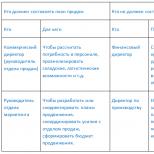Which bank is better to refinance a mortgage at a lower interest rate?
Even if at the time of obtaining a mortgage the borrower was satisfied with the rate, after a while the initially favorable interest became disproportionately high in comparison with the new mortgage programs that appeared. Due to the fact that a large amount was borrowed from the bank, even a modest difference in interest turns into a rather significant overpayment over several years. You can avoid this by refinancing your mortgage with your bank or a third-party lender. However, this should be done only after a careful assessment of the benefits and calculation of all new costs arising from debt rescheduling.
Pros and cons of mortgage refinancing
The refinancing agreement allows you to get a new target loan to repay the existing one, but on more favorable terms and without an initial payment. Along with ordinary non-targeted loans, you can refinance a mortgage at a lower interest rate, reducing the interest overpayment and reducing the regular payment.
Before deciding for yourself whether you can refinance your mortgage, you need to determine the final benefit from this step. Just a few years ago, funds for the purchase of housing were issued at a much higher mortgage rate, which is why the topic of on-lending under old agreements is so relevant. However, there is a significant “but” - as a rule, the payment was calculated according to an annuity scheme, with priority payment of interest in the first part of the loan term, so refinancing an old mortgage, when the remaining debt is small, entails dubious savings on interest. The decision must be made taking into account a complete analysis of all the advantages and disadvantages.
Reasons for refinancing:
- Decreased payment. Refinancing involves revising any of the parameters of the loan, including the term and interest. The combination of a reduced interest rate and a longer maturity period provides a relief to the payer's credit burden. Working with a mortgage calculator will allow you to estimate how much less the payment will become and what the final cost of the mortgage will be.
- Reduced overpayment. If you leave the term of the agreement unchanged, a loan at a lower interest will give you the opportunity to seriously save on overpayments to the bank. At the same time, the amount of regular payments will also decrease.
- Release of property rights from collateral. Long-term lending with registration of the acquired property as collateral does not provide an opportunity to sell, exchange, re-register housing for another, no matter how profitable and desirable this step may be. Taking advantage of refinancing without collateral, the payer eliminates mortgage debts and gets the full right to dispose of the property at his own discretion.
- Transition from a foreign currency mortgage to a ruble loan. Fluctuations in the exchange rate, and sometimes serious jumps, bother borrowers, because often wages come in rubles, and you need to exchange the amount at the increased rate to pay off the monthly debt. Despite the fact that the overwhelming majority of programs are designed for the domestic currency, there are still many active loans issued in dollars or euros. Refinancing will allow the transition to more stable payments that are not tied to exchange rate fluctuations.
- Transition to more comfortable debt service conditions.
Possible negative consequences and shortcomings of the program should be analyzed:
- Special emphasis should be placed on the benefits of refinancing at the beginning or first half of the contract period, if an annuity payment is applied. If a differentiated settlement system is used, the benefits are maintained throughout the entire lending process. The problem is that most mortgage schemes involve an annuity payment, which means that interest is paid overnight, distributed over the entire financing period in such a way that the accrued interest is paid in the first half of the term. As a result, intending to refinance in the second half of the term, the borrower discovers that the interest overpayment will be higher, since under the current agreement, most of the accrued interest has already been paid.
- Renewal costs. The additional associated costs can be serious. The new contract means that a new assessment and renegotiation of the insurance agreement is required, plus additional payments for the preparation of certificates by banks. It is necessary to calculate how much refinancing costs and whether the savings in monetary terms remain after the official change of the lender.
- Difficulties in reconciliation. In fact, targeted refinancing of a mortgage means the same actions on the part of the borrower related to the approval of the application, preparation of new documents, assessment of the credit history and solvency of a person. It is far from a fact that over the years of mortgage payments, the financial situation has strengthened, and the number of dependents in the family has remained unchanged.
More often, the mortgage is taken with the expectation of replenishing the family, the birth of children, which ultimately affects the average per capita income. The intention to renew the loan does not mean that the new lender will be ready to provide favorable conditions for refinancing.
Where is it profitable to refinance a mortgage
When assessing whether the offer of a particular bank is profitable, you should first study all other programs. Sometimes the bank provides profitable refinancing of a consumer loan at a minimum interest with an increase in the amount of the credit line, which allows you to close the mortgage debt with the amount received without damage and additional efforts. Before making a final decision, you should consider the option of lending for the best current refinancing programs.

The program from Sberbank offers to consolidate several existing loans on the following conditions:
- The rate is from 9.5% (if several other loans are combined with the mortgage - the rate is not less than 10%).
- Credit limit - up to 7 million rubles (at least 1 million rubles).
- Repayment over 30 years.
To conclude an agreement with a bank, you must meet the parameters: be over 21 years old, work for the last employer for at least six months. Be under 75 years of age at the time of the last installment.

With refinancing at VTB, it is possible to receive up to 30 million rubles to close the debt on the current mortgage (such a limit is set for the capital region).
VTB standard terms:
- The rate is 9.7-11%.
- The maximum amount is limited to 80% of the assessed value of the collateral.
- Term - 20-30 years (for payroll clients, a longer maturity period is provided).
If the borrower decides to use the program with the presentation of a minimum of documents, the maximum limit is limited to half the appraised value of the object.

The maximum size of the line under the on-lending program from Gazprombank is 85% of the housing appraisal.
Loan funds are issued by:
- with a rate of 9.5-14.1% (depending on the availability of additional insurance);
- from 500 thousand rubles;
- with maturity from one year to 30 years.
The bank allows you to refinance debt up to 45 million rubles.

Borrowers aged 21 to 65 with income from 15 thousand rubles (for Moscow and large cities - from 20 thousand rubles) can improve their mortgage conditions at Raiffeisenbank:
- The rate is from 9.99% per year.
- The amount is not more than 26 million rubles.
- The maturity date is 30 years.
It is assumed that it is possible to refinance clients with a temporary residence permit who have citizenship in another country (if they have a passport).

If the client is ready to insure his life and health, Otkritie Bank will offer to refinance the debt on the terms:
- The rate is from 9.35%.
- The maturity period is at least 5 years.
- The funds limit is 50% of the appraised value.
The borrower must prove his majority, Russian citizenship, and last place at least 3 months.

Recently, taking into account the growth of bad credit debts and the general debt load of the population, banks are more carefully considering mortgage candidates. Earlier contracts had less stringent restrictions.
Faced with the dangers of no return, each applicant is carefully screened.
A lender with high requirements for a client is unlikely to undertake to refinance a debt if there were delays in the past or earnings have decreased.
The new program entails the re-registration of the collateral object, which, after many years of payments, could lose its technical characteristics and lose liquidity.

Each bank has its own requirements, based on the established internal regulations and policies of the organization. Nevertheless, all refinancing programs involve the provision of basic documents: an application for a decrease in interest and a passport of the Russian Federation.
When revising the terms of the mortgage, you will definitely need the following papers:
- Documentation for the collateralized object (aka acquired property).
- Papers confirming the transaction (sale and purchase agreement).
- Extracts from the current creditor on the balance of the debt, other securities, including a loan agreement, details for crediting, confirmation of the absence of an overdue debt.
- Certificates from the employer or documents confirming stable regular income (2-NDFL certificate), including the co-borrower's earnings.
It must be remembered that even with a good income and fully complying with the parameters of a new lender, you can get a refusal if there are serious delays in the current contract.

Before on-lending, the borrower should carefully calculate the benefits and additional costs. You can calculate the savings on interest using a mortgage calculator, and the costs will have to be determined independently, based on the specific conditions of the bank.





